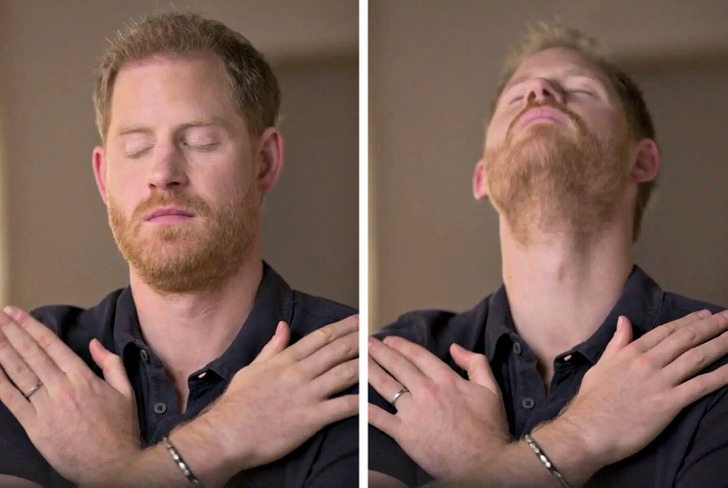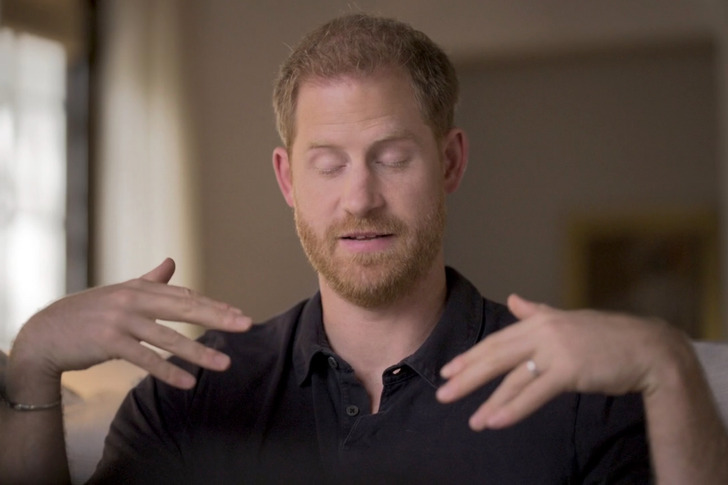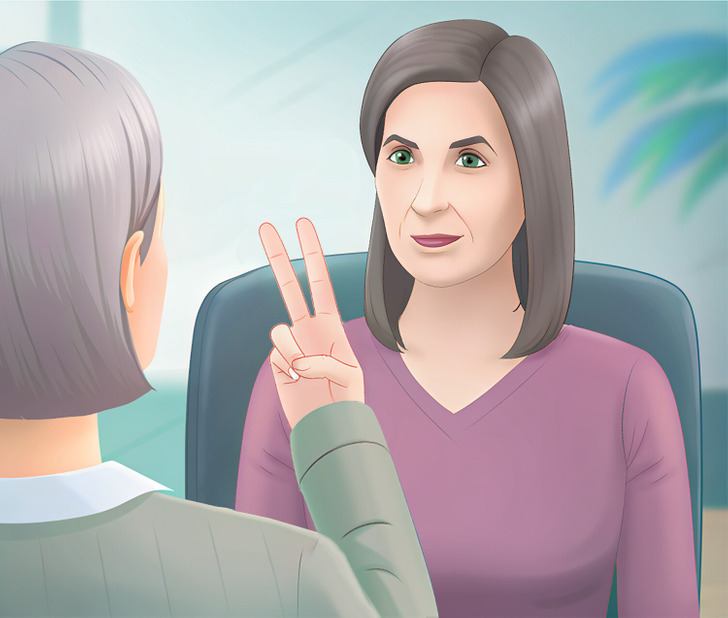Prince Harry recently opened up about his journey with post-traumatic stress disorder following the loss of his mother, Princess Diana. In a candid discussion, he revealed his exploration of a groundbreaking therapy that helped him.

The therapy is called eye movement desensitization and reprocessing (EMDR) to address the debilitating effects of his anxiety attacks. This revelation offers a glimpse into the royal’s personal struggles and his proactive approach towards mental health care, shedding light on the significance of seeking innovative treatments of traumas.
In a video, Prince Harry can be seen undergoing EMDR therapy, where he taps his shoulders and moves his eyes rapidly. This therapy is relatively new and is used to treat PTSD. Prince Harry shared that he decided to try EMDR to deal with severe anxiety attacks he was experiencing.
Prince Harry mentioned that he was open to trying EMDR because of the therapy and work he had done over the years.

During a therapy session with UK-based psychotherapist Sanja Oakley, Prince Harry demonstrated how EMDR helped him feel better about returning home. He described feeling scared and helpless before, but the therapy helped him cope with those feelings.
Prince Harry’s openness about his experience with EMDR therapy sheds light on alternative treatments for post-traumatic disorder and mental health struggles. It shows that seeking help and trying different therapies can make a difference in managing mental health conditions.

EMDR is a therapy made in 1987 to help with emotional traumas. It’s a structured therapy where you think about a tough memory while moving your eyes back and forth. This helps lessen the strong feelings tied to the memory.
EMDR works on a theory called Adaptive Information Processing (AIP). It says that trauma sticks around because it hasn’t been dealt with properly. So, when something reminds you of the trauma, those memories can come back strongly.
Unlike other therapies that try to lessen your reaction to trauma, EMDR tries to change how your brain stores those tough memories. Sometimes, instead of eye movements, you might listen to alternating tones. Usually, EMDR happens once or twice a week for about six to 12 sessions. But it can vary depending on the person.
Benefits of EMDR therapy
- EMDR is a structured therapy and usually needs fewer sessions than ongoing therapies.
- You don’t have to keep going back to the tough memory for a long time.
- You don’t have to talk a lot about what happened to you.
- There’s no homework to do.
- EMDR doesn’t try to change your thoughts and beliefs.
Disadvantages of EMDR therapy
- While EMDR is known to help with PTSD, it hasn’t been studied as much for other mood or mental health problems.
- If you’re avoiding talking about a tough event, EMDR might not be the best choice. Other types of talk therapy might work better.
- EMDR can sometimes make you feel worse at the start of treatment. The person who created EMDR warns that this could be dangerous for people who have gone through really tough things.
The process of EMDR
EMDR is a structured process with eight phases, each aimed at helping you deal with traumatic memories:
- History taking: Discuss your past with the therapist to identify which memories to focus on.
- Preparation: Learn about EMDR and how the therapist will use bilateral stimulation.
- Assessment: Identify your negative and positive beliefs related to the trauma.
- Desensitization: Use bilateral stimulation while recalling the memory.
- Installation: Focus on positive beliefs while processing the memory.
- Body scan: Talk about how you feel emotionally and physically.
- Closure: Prepare for what may happen between sessions.
- Reevaluation: Assess your progress and decide if more sessions are needed.
As you go through EMDR, you may start feeling less overwhelmed by the trauma. It’s normal for other painful memories to surface, indicating that suppressed memories are being processed.
When grappling with deep emotional traumas, it’s crucial to seek out specialists who can provide the appropriate form of treatment tailored to your needs. Whether it’s EMDR therapy or other therapeutic approaches, finding the right professional can make a significant difference in your healing journey.
Preview photo credit Good Morning America / YouTube
Teenage girl dies of cancer – when her mom looks at her coffin, her heart is filled with warmth
Laura Hilfer of Ontario, Canada, was diagnosed with leukemia at the age of thirteen. After intensive treatments, she was declared cancer free, but her and her family’s happiness was short lived as the disease returned again four years later.
Heartrendingly, this young and beautiful soul lost her battle to cancer on January 20, 2016.

Her family shared the devastating news on the social media through the Facebook page dedicated to Laura’s progress and struggles while she was still alive.
“She fought bravely and all of you would have been so proud of her. Her poise, her courage, her strength and her pure spirit shone through right until the end,” her family wrote.
The Nelson High School student was loved by many. She touched the lives of everyone she had encountered, and it was now her friends’ turn to show her just how much she meant to them.

They covered her casket with notes, expressing their gratitude, their love, as well as their sorrow that came with her passing.
Their wish was that Laura receive a love-filled farewell worth of a beloved friend and student.
Not only her classmates and teachers, but her family, neighbors, and even the hospital staff all penned tributes to her on her casket.

When they saw their daughter’s casket, Laura’s family were overwhelmed by the outpouring of support.
One of the messages read, “You were musical. You were artistic. You were understanding. You were my bestest friend.” Another read: “Very brave and strong. You will always be a hero.”
Laura’s favorite color, purple, was on display at the church and on people’s clothes.

Sadly, Laura left this world, but the outpouring of love from her local community was heartwarming to see.
May she rest in peace.



Leave a Reply